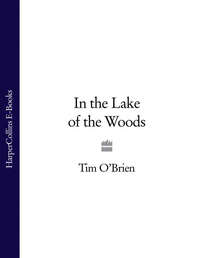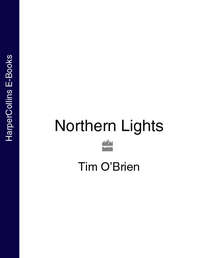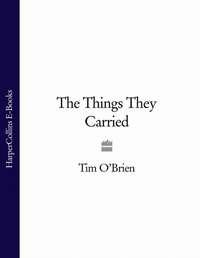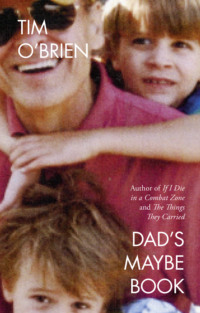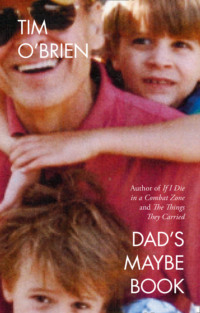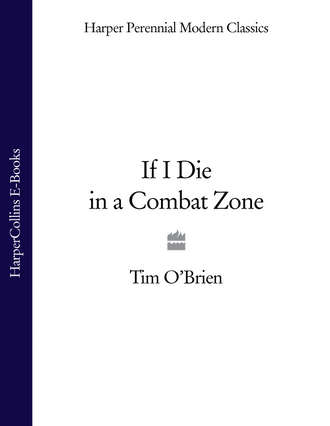
Полная версия
If I Die in a Combat Zone
I couldn’t hit a baseball. Too small for football, but I stuck it out through junior high, hoping something would change. When nothing happened, I began to read. I read Plato and Erich Fromm, the Hardy boys and enough Aristotle to make me prefer Plato. The town’s library was quiet and not a very lively place – nothing like the football field on an October evening and not a very good substitute – nothing like screaming for blood, nothing like aching with filial pride, nothing like hearty masculine well-being.
I watched the athletes from the stands and cheered them at pep rallies, wishing I were with them. I went to homecoming dances, learned to drive an automobile, joined the debate team, took girls to drive-in theatres and afterwards to the A & W root-beer stand.
I took up an interest in politics. One evening I put on a suit and drove down to the League of Women Voters meeting, embarrassing myself and some candidates and most of the women voters by asking questions that had no answers.
I tried going to Democratic party meetings. I’d read it was the liberal party. But it was futile. I could not make out the difference between the people there and the people down the street boosting Nixon and Cabot Lodge. The essential thing about the prairie, I learned, was that one part of it is like any other part.
At night I sometimes walked about the town. ‘God is both transcendent and imminent. That’s Tillich’s position.’ When I walked, I chose the darkest streets, away from the street lights. ‘But is there a God? I mean, is there a God like there’s a tree or an apple? Is God a being?’ I usually ended up walking towards the lake. ‘God is Being-Itself.’ The lake, Lake Okabena, reflected the town-itself, bouncing off a black-and-white pattern identical to the whole desolate prairie: flat, tepid, small, strangled by algae, shut in by middle-class houses, lassoed by a ring of doctors, lawyers, CPAs, dentists, drugstore owners, and proprietors of department stores. ‘Being-Itself? Then is this town God? It exists, doesn’t it?’ I walked past where the pretty girls lived, stopping long enough to look at their houses, all the lights off and the curtains drawn. ‘Jesus,’ I muttered, ‘I hope not. Maybe I’m an atheist.’
One day in May the high school held graduation ceremonies. Then I went away to college, and the town did not miss me much.
3 Beginning
The summer of 1968, the summer I turned into a soldier, was a good time for talking about war and peace. Eugene McCarthy was bringing quiet thought to the subject. He was winning votes in the primaries. College students were listening to him, and some of us tried to help out. Lyndon Johnson was almost forgotten, no longer forbidding or feared; Robert Kennedy was dead but not quite forgotten; Richard Nixon looked like a loser. With all the tragedy and change that summer, it was fine weather for discussion.
And, with all of this, there was an induction notice tucked into a corner of my billfold.
So with friends and acquaintances and townspeople, I spent the summer in Fred’s antiseptic café, drinking coffee and mapping out arguments on Fred’s napkins. Or I sat in Chic’s tavern, drinking beer with kids from the farms. I played some golf and tore up the pool table down at the bowling alley, keeping an eye open for likely-looking high school girls.
Late at night, the town deserted, two or three of us would drive a car around and around the town’s lake, talking about the war, very seriously, moving with care from one argument to the next, trying to make it a dialogue and not a debate. We covered all the big questions: justice, tyranny, self-determination, conscience and the state, God and war and love.
College friends came to visit: ‘Too bad, I hear you’re drafted. What will you do?’
I said I didn’t know, that I’d let time decide. Maybe something would change, maybe the war would end. Then we’d turn to discuss the matter, talking long, trying out the questions, sleeping late in the mornings.
The summer conversations, spiked with plenty of references to the philosophers and academicians of war, were thoughtful and long and complex and careful. But, in the end, careful and precise argumentation hurt me. It was painful to tread deliberately over all the axioms and assumptions and corollaries when the people on the town’s draft board were calling me to duty, smiling so nicely.
‘It won’t be bad at all,’ they said. ‘Stop in and see us when it’s over.’
So to bring the conversation to a focus and also to try out in real words my secret fears, I argued for running away.
I was persuaded then, and I remain persuaded now, that the war was wrong. And since it was wrong and since people were dying as a result of it, it was evil. Doubts, of course, hedged all this: I had neither the expertise nor the wisdom to synthesize answers; most of the facts were clouded, and there was no certainty as to the kind of government that would follow a North Vietnamese victory or, for that matter, an American victory, and the specifics of the conflict were hidden away – partly in men’s minds, partly in the archives of government, and partly in buried, irretrievable history. The war, I thought, was wrongly conceived and poorly justified. But perhaps I was mistaken, and who really knew, anyway?
Piled on top of this was the town, my family, my teachers, a whole history of the prairie. Like magnets, these things pulled in one direction or the other, almost physical forces weighting the problem, so that, in the end, it was less reason and more gravity that was the final influence.
My family was careful that summer. The decision was mine and it was not talked about. The town lay there, spread out in the corn and watching me, the mouths of old women and Country Club men poised in a kind of eternal readiness to find fault. It was not a town, not a Minneapolis or New York, where the son of a father can sometimes escape scrutiny. More, I owed the prairie something. For twenty-one years I’d lived under its laws, accepted its education, eaten its food, wasted and guzzled its water, slept well at night, driven across its highways, dirtied and breathed its air, wallowed in its luxuries. I’d played on its Little League teams. I remembered Plato’s Crito, when Socrates, facing certain death – execution, not war – had the chance to escape. But he reminded himself that he had seventy years in which he could have left the country, if he were not satisfied or felt the agreements he’d made with it were unfair. He had not chosen Sparta or Crete. And, I reminded myself, I hadn’t thought much about Canada until that summer.
The summer passed this way. Gold afternoons on the golf course, a comforting feeling that the matter of war would never touch me, nights in the pool hall or drug store, talking with townsfolk, turning the questions over and over, being a philosopher.
Near the end of that summer the time came to go to the war. The family indulged in a cautious sort of Last Supper together, and afterwards my father, who is brave, said it was time to report at the bus depot. I moped down to my bedroom and looked the place over, feeling quite stupid, thinking that my mother would come in there in a day or two and probably cry a little. I trudged back up to the kitchen and put my satchel down. Everyone gathered around, saying so long and good health and write and let us know if you want anything. My father took up the induction papers, checking on times and dates and all the last-minute things, and when I pecked my mother’s face and grabbed the satchel for comfort, he told me to put it down, that I wasn’t supposed to report until tomorrow.
After laughing about the mistake, after a flush of red colour and a flood of ribbing and a wave of relief had come and gone, I took a long drive around the lake, looking again at the place. Sunset Park, with its picnic table and little beach and a brown wood shelter and some families swimming. The Crippled Children’s School, Slater Park, more kids. A long string of split level houses, painted every colour.
The war and my person seemed like twins as I went around the town’s lake. Twins grafted together and forever together, as if a separation would kill them both.
The thought made me angry.
In the basement of my house I found some scraps of cardboard and paper. With devilish flair, I printed obscene words on them, declaring my intention to have no part of Vietnam. With a delightful viciousness, a secret will, I declared the war evil, the draft board evil, the town evil in its lethargic acceptance of it all. For many minutes, making up the signs, making up my mind, I was outside the town. I was outside the law, all my old ties to my loves and family broken by the old crayon in my hand. I imagined strutting up and down the sidewalks outside the depot, the bus waiting and the driver blaring his horn, the Daily Globe photographer trying to push me into line with the other draftees, the frantic telephone calls, my head buzzing at the deed.
On the cardboard, my strokes of bright red were big and ferocious looking. The language was clear and certain and burned with a hard, defiant, criminal, blasphemous sound. I tried reading it aloud.
Later in the evening I tore the signs into pieces and put the shreds in the garbage can outside, clanging the grey cover down and trapping the messages inside. I went back into the basement. I slipped the crayons into their box, the same stubs of colour I’d used a long time before to chalk in reds and greens on Roy Rogers’s cowboy boots.
I’d never been a demonstrator, except in the loose sense. True, I’d taken a stand in the school newspaper on the war, trying to show why it seemed wrong. But, mostly, I’d just listened.
‘No war is worth losing your life for,’ a college acquaintance used to argue. ‘The issue isn’t a moral one. It’s a matter of efficiency: what’s the most efficient way to stay alive when your nation is at war? That’s the issue.’
But others argued that no war is worth losing your country for, and when asked about the case when a country fights a wrong war, those people just shrugged.
Most of my college friends found easy paths away from the problem, all to their credit. Deferments for this and that. Letters from doctors or chaplains. It was hard to find people who had to think much about the problem. Counsel came from two main quarters, pacifists and veterans of foreign wars.
But neither camp had much to offer. It wasn’t a matter of peace, as the pacifists argued, but rather a matter of when and when not to join others in making war. And it wasn’t a matter of listening to an ex-lieutenant colonel talk about serving in a right war, when the question was whether to serve in what seemed a wrong one.
On 13 August, I went to the bus depot. A Worthington Daily Globe photographer took my picture standing by a rail fence with four other draftees.
Then the bus took us through corn fields, to little towns along the way – Lismore and Rushmore and Adrian – where other recruits came aboard. With some of the tough guys drinking beer and howling in the back seats, brandishing their empty cans and calling one another ‘scum’ and ‘trainee’ and ‘GI Joe’, with all this noise and hearty farewelling, we went to Sioux Falls. We spent the night in a YMCA. I went out alone for a beer, drank it in a corner booth, then I bought a book and read it in my room.
By noon the next day our hands were in the air, even the tough guys. We recited the proper words, some of us loudly and daringly and others in bewilderment. It was a brightly lighted room, wood panelled. A flag gave the place the right colours, there was some smoke in the air. We said the words, and we were soldiers.
I’d never been much of a fighter. I was afraid of bullies. Their ripe muscles made me angry: a frustrated anger. Still, I deferred to no one. Positively lorded myself over inferiors. And on top of that was the matter of conscience and conviction, uncertain and surface-deep but pure none the less: I was a confirmed liberal, not a pacifist; but I would have cast my ballot to end the Vietnam war immediately, I would have voted for Eugene McCarthy, hoping he would make peace. I was not soldier material, that was certain.
But I submitted. All the personal history, all the midnight conversations and books and beliefs and learning, were crumpled by abstention, extinguished by forfeiture, for lack of oxygen, by a sort of sleepwalking default. It was no decision, no chain of ideas or reasons, that steered me into the war.
It was an intellectual and physical stand-off, and I did not have the energy to see it to an end. I did not want to be a soldier, not even an observer to war. But neither did I want to upset a peculiar balance between the order I knew, the people I knew, and my own private world. It was not that I valued that order. But I feared its opposite, inevitable chaos, censure, embarrassment, the end of everything that had happened in my life, the end of it all.
And the stand-off is still there. I would wish this book could take the form of a plea for everlasting peace, a plea from one who knows, from one who’s been there and come back, an old soldier looking back at a dying war.
That would be good. It would be fine to integrate it all to persuade my younger brother and perhaps some others to say no to wars and other battles.
Or it would be fine to confirm the odd beliefs about war: it’s horrible, but it’s a crucible of men and events and, in the end, it makes more of a man out of you.
But, still, none of these notions seems right. Men are killed, dead human beings are heavy and awkward to carry, things smell different in Vietnam, soldiers are afraid and often brave, drill sergeants are boors, some men think the war is proper and just and others don’t and most don’t care. Is that the stuff for a morality lesson, even for a theme?
Do dreams offer lessons? Do nightmares have themes, do we awaken and analyse them and live our lives and advise others as a result? Can the foot soldier teach anything important about war, merely for having been there? I think not. He can tell war stories.
4 Nights
‘Incoming,’ the lieutenant shouted.
We dived for a foxhole. I was first in, the ground taking care of my belly, then the lieutenant and some others were in, stacked on my back.
Grenades burst around the perimeter, a few rifle shots.
‘Wow, like a sandwich,’ I said. ‘Just stay where you are.’
‘Yep, we’re nothing but sandbags for O’Brien,’ Mad Mark said, peering up to watch the explosions go off.
‘Protect the College Joe,’ Barney said, nestled down by my feet.
It didn’t last long.
A blond-headed soldier ran over when the shooting ended. ‘Jesus, I got me a hunk of grenade shrapnel in my fuckin’ hand,’ he said. He sucked the wound. It didn’t seem bad.
Mad Mark inspected the cut under a flashlight. ‘Will it kill you before morning?’
‘Nope, I guess not. Have to get a tetanus shot, I suppose. Christ, those tetanus shots hurt don’t they? I don’t want a fuckin’ tetanus shot.’
As it turned out, the first fight had not been a fire fight. The blond soldier and a few others had been bored. Bored all day. Bored that night. So they’d synchronized watches, set a time, agreed to toss hand grenades outside our little perimeter at 2200 sharp, and when 2200 came, they did it, staging the battle. They shouted and squealed and fired their weapons and threw hand grenades and had a good time, making noise, scaring hell out of everyone. Something to talk about in the morning.
‘Great little spat,’ they said the next day, slyly.
‘Great?’ I couldn’t believe it.
‘Ah, you know. Little action livens up everything, right? Gets the ol’ blood boiling.’ ‘You crazy?’ ‘Mad as a hatter.’
‘You like getting shot, for God’s sake? You like Charlie trying to chuck grenades into your foxhole? You like that stuff?’
‘Some got it, some don’t. Me, I’m mad as a hatter.’
‘Don’t let him shit you,’ Chip said. ‘That whole thing last night was a fake. They planned it, beginning to end.’
‘Except for old Turnip Head getting a piece of his own grenade,’ Bates said. ‘They didn’t plan that.’ Bates walked along beside me, the platoon straggled out across a wide rice paddy. ‘Turnip Head threw his grenade and it hit a tree and bounced right back at him. Lucky he didn’t blow his head off.’
Chip shook his head, a short, skinny soldier from Orlando, Florida, a black guy. ‘Me, I don’t take chances like that. You’re right, they’re nutty,’ he said.
We walked along. Forward with the left leg, plant the foot, lock the knee, arch the ankle. Push the leg into the paddy, stiffen the spine. Let the war rest there atop the left leg: the rucksack, the radio, the hand grenades, the magazines of golden bullets, the rifle, the steel helmet, the jingling dogtags, the body’s own fat and water and meat, the whole contingent of warring artifacts and flesh. Let it all perch there, rocking on top of that left leg, fastened and tied and anchored by latches and zippers and snaps and nylon cord.
Packhorse for the soul. The left leg does it all. Scolded and trained. The left leg stretches with magnificent energy, long muscle. Lumbers ahead. It’s the strongest leg, the pivot. The right leg comes along, too, but only a companion. The right leg unfolds, swings out, and the right foot touches the ground for a moment, just quickly enough to keep pace with the left, then it weakens and raises on the soil a pattern of desolation.
Arms move about, taking up the rhythm.
Eyes sweep the rice paddy. Don’t walk there, too soft. Not there, dangerous, mines. Step there and there and there, not there, step there and there and there, careful, careful, watch. Green ahead. Green lights, go. Eyes roll in the sockets. Protect the legs, no chances, watch for the fuckin’ snipers, watch for ambushes and punji pits. Eyes roll about, looking for mines and pieces of stray cloth and bombs and threads and things. Never blink the eyes, tape them open.
The stomach burns on simmer, low flame. Fire down inside, down in the pit, just above the balls.
‘Watch where you sit, now,’ the squad leader said. We stopped for shade. ‘Eat up quick, we’re stopping for five minutes, no more.’
‘Five minutes? My lord, it’s ninety degrees. Where’s the whips and chains?’ Bates picked a piece of ground to sit on.
‘Look,’ the squad leader sighed. ‘Don’t get smart ass. I take orders, you know. Sooner we get to the night position, sooner we get resupplied, sooner we get to sleep, sooner we get this day over with. Sooner everything.’ The squad leader cleaned his face with a rag, rubbed his neck with it.
Barney sat down. ‘Why we stopping now?’
‘Good,’ the squad leader said. ‘Someone here understands it’s better to keep moving.’
Bates laughed, an aristocrat. ‘I don’t know about Buddy Barney, but actually, I was dreaming on the march. I was right in the middle of one. Daughter of this famous politician and me. Had her undressed on a beach down in the Bahamas. Jesus.’ He gestured vaguely, trying to make us see, sweeping away the heat-fog with his hand. ‘Had her undressed, see? Her feet were just in the water, these luscious waves lapping up all around her toes and through the cracks between them, and she had this beach towel under her. The only thing she was wearing was sunglasses.’
‘You really think about politicians’ daughters out here?’ Barney asked.
‘Lovely,’ Bates said. He closed his eyes.
We ate our noon C rations, then walked up a trail until the end of day.
We dug foxholes and laid our ponchos out for when it was time to sleep.
‘Look at this,’ Barney said. ‘It’s a starlight scope. Mad Mark gave it to me to hump. Must weigh twenty-five pounds, lift the damn thing.’
It weighed twenty-five pounds, counting the black case with its silver handle.
‘We’ll try it out tonight,’ Barney said. ‘Damn thing better work for twenty-five pounds.’
‘You look like a New York businessman on the way to work,’ Bates muttered. ‘Looks like a briefcase or something.’
‘What you got?’ Chip sat with us.
‘Starlight scope.’
‘Something to look at stars through, right? Good idea.’ Chip wore a bush hat in place of a helmet; claimed he didn’t take a good picture in a helmet.
‘How does it work?’
‘Fucking kaleidoscope or something,’ Barney said. ‘Damned if I know.’
‘Supposed to let you see in the dark. They mentioned the thing back in boot camp, but that’s the last I heard of it till now.’ Bates squatted down, opened the case, and hefted the starlight scope out of its black box.
‘Star light, star bright,’ Chip chanted, ‘first star I see tonight.’
‘Look at the size of this mother! What’s the dial for? Need a law degree and two Ph.D.s to figure out how to work the thing.’ Bates fiddled with the dial. He took the rubber protective cap off the lens, put the starlight scope to his eyes.
‘Wish I may, wish I might,’ Chip chanted, ‘have the wish I wish tonight.’
‘Shit,’ Bates said.
Barney put his hand before the lens. ‘What do you see?’
Bates giggled. He scanned the sky.
‘What the hell you see there, Bates?’
‘Wow, it’s a peep show, man.’
‘Dream on, dream on.’
‘Here, let me look,’ Chip said. Bates handed it over. Chip played with the scope. ‘Dancing soul sisters,’ he said. He giggled and stared into the machine. ‘Star light, star bright.’
Barney tried it. ‘Christ, you can’t see a thing.’
‘Certainly not, it’s not dark yet. No stars. You need stars for a starlight scope.’
We waited until dark, then tried it again. Tinkering with the dial, Bates got the scope to work.
The machine’s insides were secret, but the principle seemed simple enough: use the night’s orphan light – stars, moonglow, reflections, faraway fires – to turn night into day. It contained a heavy battery, somehow juicing up the starlight, magically exposing form and giving sight.
‘Fairytale land,’ Chip murmured. ‘I see at night.’
‘Any gooks?’
‘I see a circus,’ Chip whispered. ‘Like the colours in a jet plane at night, up in the cockpit where the instrument panel is kind of shimmering green. All the rocks and trees out there is green at night. I didn’t know that.’
‘You aren’t supposed to see the night,’ Bates said, taking his turn. ‘Trees, you can see them. The hooches over there, just as quiet as can be, not a movement. God, everything’s dead through this thing.’
We sat on the lip of a foxhole, using the starlight scope.
‘Really,’ Bates said softly, ‘you aren’t supposed to see the night. It’s unnatural. I don’t trust this thing.’ He gave it to me.
‘Star light, star bright, first star I see tonight. I wish I may, I wish I might, have the wish I wish tonight.’ Chip went to sleep.
I looked out at the green, dancing night.
‘I wish for peace,’ Bates said.
‘Me, too.’
‘What do you see?’
‘A green fire. The countryside is on fire at night.’
‘Anything moving?’
‘Nope.’ I pointed the scope at a thicket outside our perimeter. The bushes sparkled in strange, luminous colour. I pointed it at the stars. ‘I can see the clouds,’ I said. ‘They’re moving, you can see them moving, bright as day.’
‘Well, for God’s sake, you’re not supposed to stare at the damn stars with that thing,’ Bates said. ‘You’re supposed to look for Charlie.’
Mad Mark came over. ‘Hey, shut the hell up, you two.’ He left.
‘Here, I’ll take the first watch,’ Bates said. I gave him the starlight scope, but he put it aside and cradled his rifle in his arms and peered out at the dark. ‘Night,’ he said.
5 Under the Mountain
To understand what happens to the GI among the mine fields of My Lai, you must know something about what happens in America. You must understand Fort Lewis, Washington. You must understand a thing called basic training. A college graduate in May 1968, I was at Fort Lewis in mid-August. One hundred of us came. We watched one another’s hair fall, we learned the word ‘sir’, we learned to react to ‘To duh rear, HARCH!’ Above us the sixty-mile-distant mountain stood to the sky, white and shivering cold. The mountain was named Rainier, and it stood for freedom.


